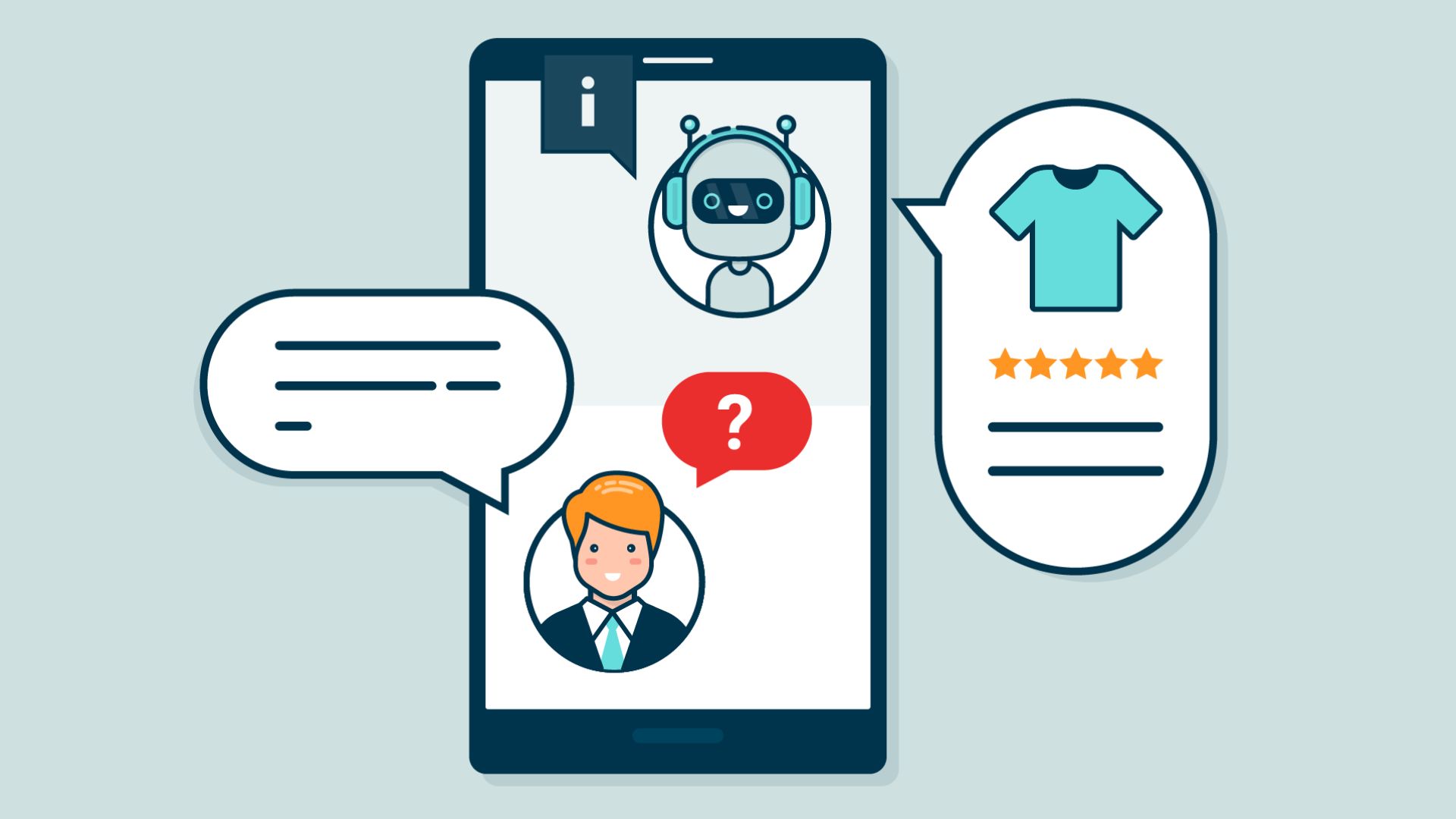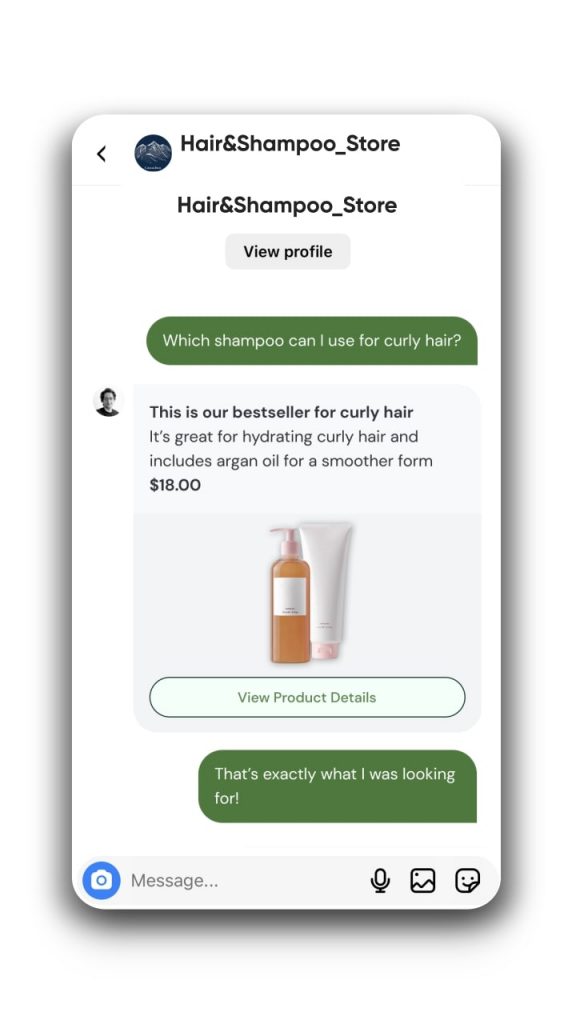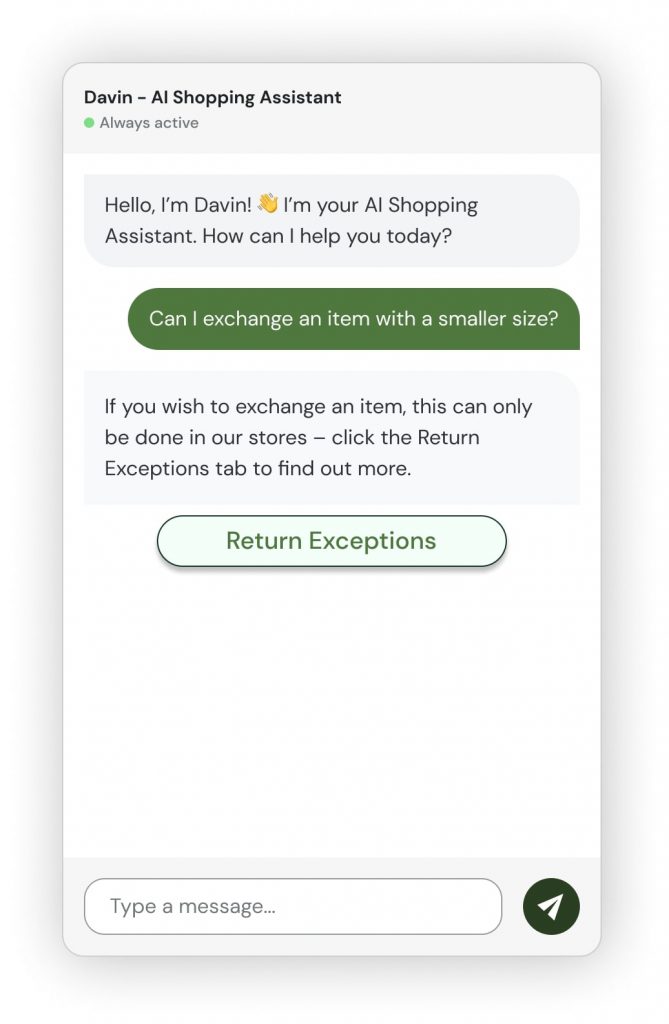Benefits of Chatbots in E-Commerce
Inci Vardar
Ever since I watched the Terminator series, I have perceived all robots as a kind of threat, from kitchen utensils to ChatGPT. But Terminator 2 taught me that robots can be beneficial both for the future of humankind and for e-commerce. In the case of the Terminator, it is all the profits still coming from the online sales of merchandise, but for the chatbots, it is an entirely different story. Before going into the details of the benefits of chatbots in e-commerce, let’s take a look at how it all started and later changed the landscape of e-commerce forever.

The Rise of Chatbots in E-commerce
ELIZA, the seminal chatbot developed at MIT labs in 1966, was not just a rudimentary program; it was a pioneering endeavor in the realms of Natural Language Processing (NLP) and artificial intelligence. Designed to mimic human conversation by leveraging algorithmic logic to match user queries with a set of predefined responses, ELIZA simulated the intricacies of a psychotherapist’s dialogue. Astonishingly, during its testing phase, it elicited genuine emotional engagement from human users, even prompting some to request observer exclusion for confidentiality. This watershed experiment laid the groundwork for the evolving synergy between NLP, machine learning, and AI in modern chatbots.
The technology was too valuable to be used merely for psychotherapy. Wouldn’t it be nice if something like ELIZA was programmed to mimic the conversations of an assistant or a sales representative? It would relieve real humans from mundane tasks like arranging appointments, greeting customers, or tracking deliveries. Imagine the time it would save! And it did. It still does, increasingly. Here are some recent statistics about chatbots in e-commerce.

What Are E-commerce Chatbots?
E-commerce chatbots are virtual assistants that help humans with their conversational commerce practices by handling automation, improving customer service, and sometimes managing the whole sales process. E-commerce chatbots are powered by artificial intelligence, and they employ natural language processing to understand and respond to customer inquiries.

Today, chatbots play an important role in e-commerce, streamlining many customer-related processes both for large companies and start-ups that aim to scale. They are utilized in e-commerce websites, social media, and messaging platforms to greet customers, answer frequently asked questions, solve common issues, assist with product searches, offer personalized recommendations, and guide users through the purchasing process. By providing 24/7 real-time support and taking the appropriate actions at every step, e-commerce chatbots enhance customer engagement and help brands increase their conversions, as well as overall customer satisfaction.
The Underlying Technologies of E-commerce Chatbots
It’s worth diving deeper into the technological frameworks that enable chatbots to function effectively in an e-commerce setting. At the core of these virtual assistants lies a blend of Natural Language Processing (NLP) and machine learning algorithms. NLP allows the chatbot to understand, interpret, and generate human language in a contextually relevant way. On the other hand, machine learning allows the chatbot to ‘learn’ from data patterns and user interactions, enhancing its response accuracy and effectiveness over time. This confluence of technologies has elevated chatbots from mere scripted responders to sophisticated entities capable of complex decision-making and personalization.
The Double-Edged Sword: Pros and Cons of E-commerce Chatbots
While chatbots offer numerous advantages, such as 24/7 availability and data-driven customer insights, they are not without their limitations. For instance, they can sometimes misinterpret user queries due to the nuances of human language, leading to customer frustration. Additionally, while chatbots can handle a vast array of tasks, they are not yet fully equipped to replace the emotional intelligence and nuanced understanding that a human customer service representative brings to complex problem-solving. Understanding these pros and cons can help businesses implement chatbots more strategically.
15 Key Benefits of Chatbots in E-commerce
Chatbots share a few common benefits with the Terminator; luckily, homicidal tendencies are not among them. Apart from not requiring food or sleep, chatbots have perfect memories, and they can access customer data much faster than humans; thus, they can manage hundreds of conversations simultaneously.
Here is how these advantages benefit brands in the domain of e-commerce:

- Seamless Real-Life Interaction
E-commerce chatbots are designed to mimic customer support and sales representatives. They can be trained to say “Hasta la vista, baby” (or “Welcome to our e-store. How can I help you today?”) like a human can, and greet your customers, identify them, and learn about their purpose of clicking to your chat widget, without you lifting a finger.
- Uninterrupted 24/7 Customer Service
E-commerce chatbots don’t make customers wait. They significantly improve a brand’s first response time and provide 24/7 customer care without being interrupted by lunch, meetings, sleep, bad hair day, or anything else. Even when they aren’t programmed to provide real-time assistance, they can inform your support-seeking customers of the business hours and steer them toward the FAQ section.
- Ensuring Customer Data Security
With regular security audits and updates that address potential vulnerabilities, chatbots can keep secrets such as a customer’s payment details, personal identification, and purchase history quite effectively. They use encrypted communication channels and are designed to collect and store necessary data only, minimizing the exposure of sensitive customer information.

- Personalizing and Connecting Product Recommendations
Chatbots can make personalized recommendations to customers based on their own shopping history or products purchased together by other customers. This added value enhances the shopping experience for the customers, making it more likely that they will complete the purchasing process with more than they planned for.
- Page Targeting for Customized Experiences
In order to increase the likelihood of conversion, AI-powered e-commerce chatbots interact with the customers related to the page they are currently browsing or the actions they have taken. For example, a chatbot can welcome a prospect with a different greeting than a customer who has previously visited specific product pages.
- Interactive Flow for User Engagement
Just like ELIZA, modern chatbots can be programmed to follow an interactive flow and keep up with a human-like conversation. Train them with a logic that involves a series of paths that a customer’s response can trigger, and you can enjoy your free time while the chatbot drives the customer further into the sales funnel and even closes the sales with some extra information about their preferences.
- Boosting Brand Awareness
This one is a little indirect, but chatbots can help boost brand awareness by supporting SEO. Search engines favor websites where users spend time, jump from link to link, find what they are looking for, and leave satisfied enough to revisit. Your chatbot can start the conversation with a compelling greeting, for example, asking what the customers want and presenting them with some possible answers. Following product recommendations can interest the customer, leading to more time on-site and further engagement.
- Reducing Customer Frustration
We mentioned that chatbots are fast and attentive, and they never leave customers hanging, whether it’s day or night or even during peak hours. They can quickly address common concerns and issues, such as order tracking, returns, and refunds. Fast responses make customers happy, even if they are frustrated in the first place. After this positive start, no matter how angry or rude the customer is, chatbots can’t retaliate since they don’t know how to snap back (provided that they use the correct tone of voice and deliver the appropriate messages). But you need to have an escape hatch and offer the possibility to end the conversation with the chatbot and connect to a human representative.
- CRM Integrated Bots for Improved Customer Management
Today, customers interact with brands in an omnichannel environment. Large amounts of customer data come from various sources, which makes CRM integrations a necessity. Chatbots can be seamlessly integrated with various CRM tools for effective management, as well as messaging platforms, websites, and mobile apps, offering customers flexibility in how they interact.
- Gaining Valuable Customer Insights
Either by deploying chatbots to different areas of your website or just analyzing the interactions throughout the conversations, you can gain valuable insights from your chatbot. This information can be used in order to improve products, services, and the overall shopping experience according to trends and preferences.
- Facilitating E-commerce Business Growth
Chatbots facilitate e-commerce business growth in three areas. First of all, they can stretch the business hours to 24/7. They can also have conversations in different languages, opening your brand to foreign markets if supported by global shipping. Finally, chatbots offer a cost-effective means of scalability, negating the need to expand the workforce.
- Strengthening Internal Communication
Functioning as a tool for customer interaction, chatbots have the potential to significantly lower support expenses, elevate customer contentment, and amplify the volume of successful digital transactions. But they can also be programmed to strengthen internal communication and save time that can be better allocated elsewhere. They can handle mundane tasks such as scheduling meetings across employee calendars, booking meeting rooms, submitting hours, or more interactive tasks like employee onboarding.
- Maintaining Brand Voice
Robots are usually stigmatized for not having feelings, but in e-commerce, this turns into an advantage. Chatbots can maintain a consistent interaction style and knowledge base and provide a standardized level of service, ensuring that all users receive the same quality of assistance regardless of the time or day.
- Providing Cost Savings
A number of chatbots can be built in an organization for a variety of purposes, such as providing customer support, managing the sales journey, tracking orders and deliveries, as well as strengthening internal communication. This saves time and reduces the need for larger teams, especially for routine and repetitive tasks.
- Reduce Cart Abandonment
According to Baymard Institute’s report, about 70% of customers abandon their carts. Some may have second thoughts about the product’s usefulness; some may be concerned about shipment or return policies. Chatbots can intervene at the right moment and relieve the concerns, or may at least learn why the customer preferred not to complete the purchase and save the day.
Juphy AI for E-Commerce Businesses
AI chatbots offer a range of valuable and cost-effective benefits for your online business, varying from brand awareness and growth to user engagement and addressing cart abandonment issues. These aspects are critical to the success of any e-commerce business, where customer satisfaction and shopping experience are important. Unlike other AI chatbots, Juphy‘s ChatGPT-powered AI Agent for Shopify offers easy one-click integration with your Shopify store, without the need for technical skills. And with its ‘Built for Shopify’ badge, Juphy AI is directly manageable from the Shopify dashboard.
Check out how its simple and user-friendly features can help your e-commerce business:
- Quick Support: Waiting for answers can be frustrating for buyers. From addressing FAQs to resolving post-purchase queries and product-related issues, Juphy’s AI Agent offers an immediate point of touch. Available day and night, 24/7, 365 days a year, it ensures your customers can quickly reach out and resolve any uncertainties in their minds.
- Integration and Data Tracking: Effectively evaluating customer insights and data requires streamlined interaction and detailed tracking. Juphy’s CRM tool goes beyond just logging your AI chatbot interactions; it creates a comprehensive history of valuable information. Moreover, it enables smooth integration with your Shopify store, social media, and review platforms, providing a unified platform for in-depth analysis and informed decision-making in the area of Shopify and social commerce business.


- Social Media Connection: In addition to connecting Juphy AI to your Shopify store, you can simply integrate it with your Instagram and Facebook pages as well. This enables you to provide a linked experience for visitors across Shopify and social media platforms, with Juphy’s AI Agent conveniently handling your DMs and routing visitors to your website. In that way, you can ensure a consistent brand image and effortlessly increase lead generation.

Conclusion
E-commerce chatbots provide various benefits to both customers and businesses alike, such as increased customer satisfaction, improved operational efficiency, and higher conversion rates.
Although there are still skeptics, chatbots are moving towards taking over the world of e-commerce, one successful conversation at a time.

